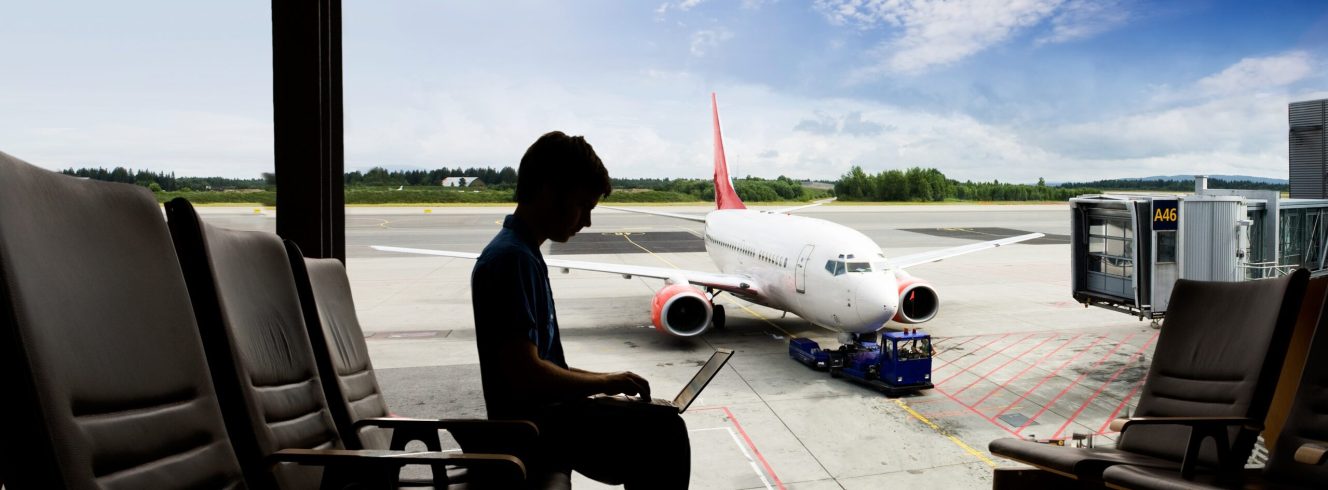Introduction
Self-service portals for passengers have revolutionized the way airlines engage with travelers. Such online portals enable passengers to book, check-in, choose seats, handle baggage, and even obtain assistance-all from their screens. Airlines that adopt self-service portals seek to cut costs of operation, make processes smoother, and enhance passenger experience.
However, in spite of the obvious advantages of these portals, most airlines are unable to obtain their maximum potential. Many face typical difficulties such as poor uptake, integration problems, and operational inefficiencies. VoyagerAid assists airlines in overcoming these challenges, offering AI-powered advice, easy integration, and actionable analytics to make self-service portals truly productive.
Key Takeaway
- A self-service portal that allows passengers to handle disruptions easily. It enables self re‑accommodation flight for quick and seamless rebooking. Passengers can also use self service reaccommodation options to manage their travel changes independently.
- User-Centric Design Matters: The most sophisticated portal does not work if passengers are confused or perplexed about its workings.
- Integration Drive Efficiency: Portals need to talk to every airline system seamlessly to avoid operational flaws and delays.
- Staff plays a critical role: Enabled and trained staff can drive adoption and enhance the passenger experience.
- Passenger Diversity Cannot be ignored: Multilingual portals that support multiple languages, levels of tech comfort, and accessibility requirements are vital.
- Ongoing Monitoring is Crucial: Regular updates, maintenance, and actionable analytics keep portals performing and reliable.
Factors Affecting Success of Self-Service Portals
These are the most important factors that decide if a self-service portal can function properly:
Portal Accessibility and Device Compatibility
The portal must be fast, functional, and accessible on all devices – desktop, mobile, and tablet and across various browsers and operating systems. Accessibility features for disabled passengers are also a key consideration.
Speed and Reliability
Quick loading times, responsive user interfaces, and low downtime are crucial. Slow or unreliable portals hurt passenger satisfaction and adoption.
Personalization Capabilities
Portals that are tailored to individual passengers displaying relevant bookings, promotions, or reminders make the travel process more enjoyable and foster repeat use.
Security and Privacy Compliance
Secure transactions and passenger data protection instill trust. Compliance with regulatory standards such as GDPR is essential for credibility.
Scalability and Flexibility
Peak traffic volumes (holiday periods, large events) should be managed by portals without compromising performance, and they should easily adapt to new features or operational changes.
Integration Readiness
Although separate from Challenges, the portal’s integration with airline systems, payment gateways, and third-party services will define whether it can run long-term with ease.
Challenges in Rolling Out Self-Service Portals
Although the points mentioned above will determine success, airlines also experience practical challenges when rolling out:
- Poor User Experience
Airlines might prioritize deploying technology fast over creating a user-friendly passenger portal, which results in confusion, abandoned transactions, and low usage.
- Integration Gaps
Portals that stand alone from airline systems generate inconsistencies between reservations, check-ins, and baggage processing, resulting in operational mistakes and delays.
- Employee Resistance or Limited Training
Workers might see portals as competition for their jobs or not be ready to support passengers and hinder adoption and the passenger experience as a whole.
- Failure to Consider Passenger Diversity
Gateways created for technology-aware travelers usually overlook older travelers, global travelers, or passengers with special needs, causing frustration and heightened reliance on counters.
- Deficiencies in Maintenance and Support
In the absence of pro-actively monitoring and updating portals, they are prone to downtime, hangs, or security concerns, eroding passenger confidence and operational effectiveness.
- Misaligned Metrics
Concentrating solely on login frequencies or check-ins omits passenger satisfaction, transaction success, and error rates, and misses opportunities for ongoing improvement.
How VoyagerAid Assists
VoyagerAid solves these issues with an AI-powered, integrated, and passenger-centric solution:
Improved Passenger Experience
VoyagerAid streamlines portal processes, anticipates passenger action, and offers personalized instructions so that check-ins, booking changes, and other activities are effortless.
Effortless System Integration
The platform integrates self-service portals with booking engines, departure control systems, baggage handling, loyalty schemes, and operational dashboards, with real-time synchronization.
Empowering Staff
Employees are provided with actionable information and advice in real time, allowing them to serve passengers effectively and drive portal adoption.
Accommodating Passenger Diversity
VoyagerAid caters to multilingual interfaces, accessibility, and customized advice for various segments of passengers.
Proactive Maintenance and Support
Predictive monitoring, alerts, and automatic updates maintain portals in top operating condition and security.
Actionable Analytics
The system monitors both operational KPIs and passenger satisfaction measures, offering insights to optimize portal performance continuously and improve the journey experience.
Conclusion
Self-service portals are more than electronic check-in devices – they are strategic assets that can boost passenger satisfaction and operational effectiveness. It takes user experience, system integration, staff preparedness, and passenger diversity for success. Airlines that discount these elements risk frustrated travelers, operational disruption, and unused technology.
VoyagerAid assists airlines in avoiding these pitfalls by providing AI-powered disruption Management solution insights, streamlined integration, employee empowerment, and actionable analytics. With VoyagerAid, self-service portals are not just operational but revolutionary, allowing airlines to address passengers’ expectations, enhance operational efficiency, and outdo competitors in an extremely competitive market.



